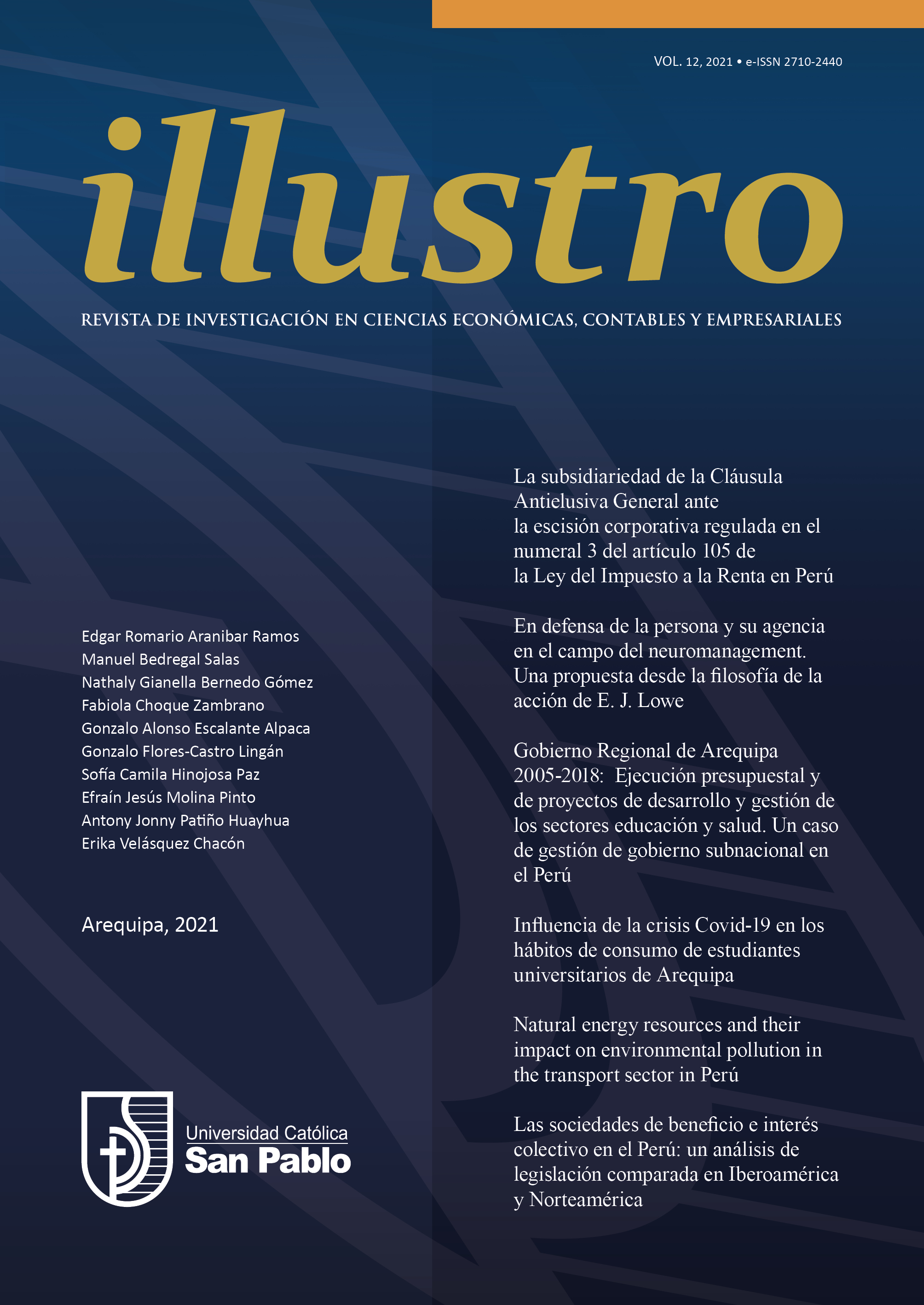Abstract
Natural energy resources such as natural gas are important in the development of countries that have reserves. These resources may also important in the reduction of polluting emissions generated by the vehicles of the automotive fleet. In this context, the production of natural gas fuel for vehicles allows the reduction of emissions and, consequently, of the levels of air pollution. The objective of this study is to evaluate natural energy resources and their impact on environmental pollution in the transport sector, the availability of these energy resources, the impact of pollution and the strategies for the reduction of emissions, in the Peruvian context, by reviewing information from various sources. Peru has developed projects for the production of natural gas and initiatives to distribute through a gas pipeline network. The growth of the vehicle fleet has generated high levels of air pollution in the country’s cities. Natural gas vehicle fuel emits almost no heavy particles, and does not generate much PM10, and as many polluting emissions such as CO2, CO, NOx, SO2, HC, generated by other fuels. There are still limitations in emission reduction strategies because the adaptation of vehicles to natural gas has decreased due to the high costs of the service and the perception of not obtaining benefits in its use, in addition to having few establishments that sell natural gas throughout the country.

This work is licensed under a Creative Commons Attribution-NonCommercial-NoDerivatives 4.0 International License.
Copyright (c) 2021 Erika Velásquez Chacón, Efraín Jesús Molina Pinto

